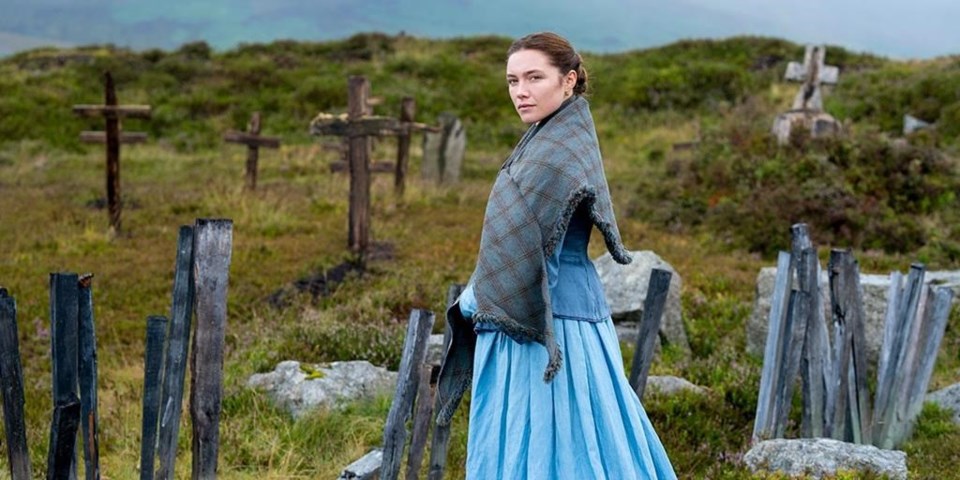TORONTO — While shots of food are a mainstay in film, daily routines are often glossed over — mealtimes included.
But at the Toronto International Film Festival this year, several films use eating scenes as a mechanism for character development, showing evocative imagery of people noshing.
In "The Wonder," 19th-century set psychological thriller about 11-year-old Anna who claims God has given her the ability to survive without food, Florence Pugh plays a nurse who is sent to surveil the girl and figure out how she has lived for months seemingly without eating.
Pugh's character, Lib Wright, serves as a foil to the fasting girl, as she's introduced to the audience unabashedly digging into a meal while travelling to Ireland by boat, and slurping on soup in multiple scenes.
Those were intentional cinematic choices meant to challenge the tropes commonly found in stories about girls who choose not to eat, explains Emma Donoghue, who co-authored the screenplay for "The Wonder" and wrote the novel it's based on.
"The last thing I wanted was to be sucked into the kind of anorexic death wish storyline, frankly," she said in an interview during the festival.
Played by newcomer KĂla Lord Cassidy, the little girl is a lost soul telling herself a story — that she has been chosen by God for a special purpose — in order to make sense of the world.
"I don't want to be caught up in the idea of this amazing, pure little girl who doesn't eat," Donoghue said.
"As a counteractive to that, we had the nurse being a force of life, and physical needs and reality," Donoghue said. "When she's saying to the girl, 'Join me on the side of life,' we're seeing that. We don't want to just preach it."
In "The Wonder," food means life.
There's something about Pugh's performance that lends itself to that narrative, Donoghue said.
"Florence is a particularly good eater," she said. "Not only is she known for her enthusiasm about food on Instagram, she eats with this kind of decisive relish. It's almost hedonistic. She looks like, 'I need this fuel for my power.'"
Showing food as both appealing and necessary for survival is a stark contrast to other films that depict eating at TIFF this year.
"The Whale," the Brendan Fraser vehicle about a housebound 600-pound man with days left to live, uses food to disgust.
In one scene, his face is smeared with fried chicken oil as he eats. In another, he chokes on a sub for eating too fast.
The movie has beencriticized by some as fatphobic, with the eating scenes seen as treating Fraser's character with less than an empathetic touch.
"I understand their feelings," Fraser said at a press junket on Sunday.
The story is based on playwright Samuel Hunter's experience, Fraser said. Hunter has described himself as someone who used to have a complicated relationship with food.
For his part, Fraser urged people to see the film before deciding what to think about it.
"I think there's more good to be done by seeing this film and judging it afterwards, than what has been spoken about prior to it being seen," he said.
Meanwhile, in "The Menu," a sardonic thriller skewering the class dynamics of fine dining, food sates a hunger for status rather than nourishment. When dinner costs more than $1,000, customers are expecting more than a meal.
The film's imperious chef, played by Ralph Fiennes, instructs the upper-crust diners to not "eat," but to "taste."
There are stand-alone glamour shots of the complex dishes alongside a list of ingredients, both edible and metaphysical. One course comprises a series of spreads served with a note explaining the absence of bread.
Nicholas Hoult, playing a self-styled gourmand, ostentatiously savours each dish, but not before snapping a photo on his phone.
"You have to try the mouth feel of the mignonette," he says.
This report by The Canadian Press was first published Sept. 14, 2022.
—with files from Adina Bresge and Cassandra Szklarski.
Nicole Thompson, The Canadian Press




